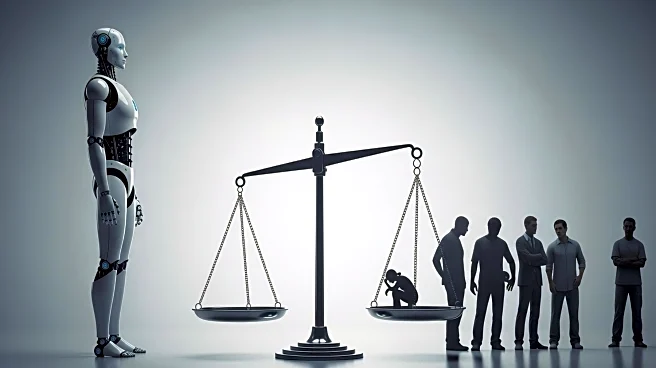What is the story about?
What's Happening?
Jim Cramer, a CNBC analyst, has identified a significant divide in the current U.S. economy. He notes that the economy is split between a robust segment fueled by the artificial intelligence boom and a weaker consumer sector that requires interest rate cuts for improvement. Cramer emphasizes that AI companies are largely unaffected by interest rates due to their ability to raise equity from deep-pocketed partners. In contrast, consumer-oriented companies are struggling, as evidenced by disappointing earnings from CarMax and KB Home, and Starbucks' decision to reduce its store count and workforce.
Why It's Important?
The divide highlighted by Cramer underscores the differing impacts of economic policies on various sectors. While AI companies continue to thrive, traditional consumer sectors such as autos, housing, and retail face challenges. This disparity could influence policy decisions, as rate cuts might be necessary to support consumer spending and economic growth. The strength of AI-related companies may skew overall economic indicators, potentially masking underlying weaknesses in consumer-driven sectors.
Beyond the Headlines
Cramer's analysis suggests a need for nuanced economic policies that address the specific needs of different sectors. The reliance on AI-driven growth may not translate into broader economic benefits, as these companies have limited interaction with the day-to-day lives of the workforce. Policymakers may need to consider targeted measures to support consumer sectors, ensuring balanced economic growth and stability.















